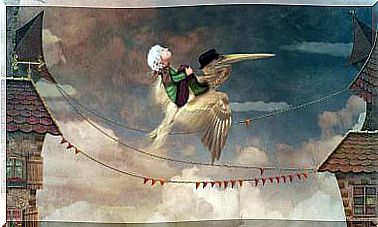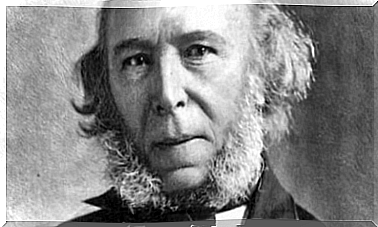The Meaning Of Dreams Through History

The meaning of dreams tends to change throughout history. In this article, you will reflect and travel through the universe of dreams.
The analysis of the function and meaning of dreams is different throughout history. Therefore, we have developed theories that give dreams functions linked to learning, survival, rest and mysterious beliefs.
In every culture, the interpretations have been loaded with magical content that directly affects everyday life. With the development of people and technology, the interpretation and study of dreams also developed.
Then we went from the analysis of the magical content independent of the dreamer to forms of analysis that are related to scientific theories with a focus on the function of the brain in each individual.
What are dreams?
The dream is an active biological process and a universal function in the brain. Dreams usually occur during REM sleep (rapid eye movement, ie rapid eye movements). This sleep phase is defined by the following characteristics:
- Behavior. Partial motor deactivation.
- Physiological. Variation in the electrical activity of the brain (similar to that of wakefulness).
REM sleep
REM sleep is a phase in which the motor neurons of the brainstem are blocked. As a result, it prevents the person from moving, but his brain is very active. During this phase, the clearest dreams emerge and have a common thread, even if they seem incoherent. For example, the eyes move and the brain activity is similar to that of wakefulness. In addition, heart rate and blood pressure rise.
The first explanations for the meaning of dreams
In Mesopotamian civilizations such as Babylonian or Sumerian, dreams signified expressions of what was beyond. In fact, they saw dreams as divine expressions and assigned them gods. But in Egypt, dreams acted as omens, messages of destiny that they had to decipher.
The most famous story is from the biblical text in Genesis. This happened when Pharaoh dreamed of seven lean cows running along the Nile, and the interpretation predicted years of impending drought. Based on this, political and administrative measures were taken.
The meaning of dreams in ancient Greece
The Greeks regarded dreams as messages from the soul, and they interpreted them as revelations. But when people had recurring nightmares, they would entrust themselves to Morpheus, the god of sleep.
For what purpose do you sleep and dream?
Polysomnographic studies allow us to determine that living things have a biological rhythm of approximately 24 hours. This process is the basis of the circadian rhythm clock, a system based on the hypothalamus. In fact, this clock regulates the biological rhythm that is affected by external factors, such as light and temperature, and is responsible for getting us to sleep and stay awake.
Do we dream all the time we sleep?
The answer is no. All people have periods of NREM (Non-rapid eye movement), which means slow waves, and REM sleep. Consequently, these periods are alternating throughout the night. Each person experiences approximately five intervals of REM sleep, which occur to a greater extent during the second part of the night.
Conservation mechanism
Several authors believe that the dream is a conservation mechanism through the evolution acquired by mammals. The high brain activity during REM sleep would serve as a periodic warning system for possible predator attacks. High activity has been detected in the amygdala and limbic system during dreams.
The functions of sleep
- Rest. It allows neurotransmitters to recharge while sensory motor nerve cells are uninhibited.
- Genetic. Dreams have an adaptive function because they allow the implementation of programs to repeat behavior patterns.
- Informative. REM sleep has been related to memory consolidation. In this phase, the memory discards the weakest connections from the previous day. On the other hand, it consolidates the strongest.
- Creativity. Representation of the inner world. The imagination and brain activity to recreate different situations are tested.
- Cognitive development. The development of visuospatial skills in children may relate to the quality of brain expression.
Emotional interpretation and the meaning of dreams
Sigmund Freud was one of the first authors to systematically interpret dreams. He first related the meaning of dreams to emotional experiences, where the subconscious manifests itself through symbolic language. Then Carl Gustav Jung, already separated from the theories of his master, proposed under the synergistic paradigm, a theory in which dreams reveal shared archetypes.
A door to the inner world
It is not difficult to realize that in your nightmares you express your fears and in your happy dreams your desires. During times of confusion or stress, you express your true desires in dreams without limitations in everyday life.
How do you interpret the meaning of dreams?
The field of psychoanalytic studies has tried to classify the meaning of dreams in various dictionaries. However, this task is very difficult and not very accurate when one takes into account the cultural variations of the language. At the same time , finding connections between the subjects of dreams and daily life is a way of giving meaning to dreams.

To share the meaning of dreams
Some people have disturbing dreams and prefer not to share them. However, there are others who are curious and want to analyze them. If you belong to the latter group, we give you some tips:









